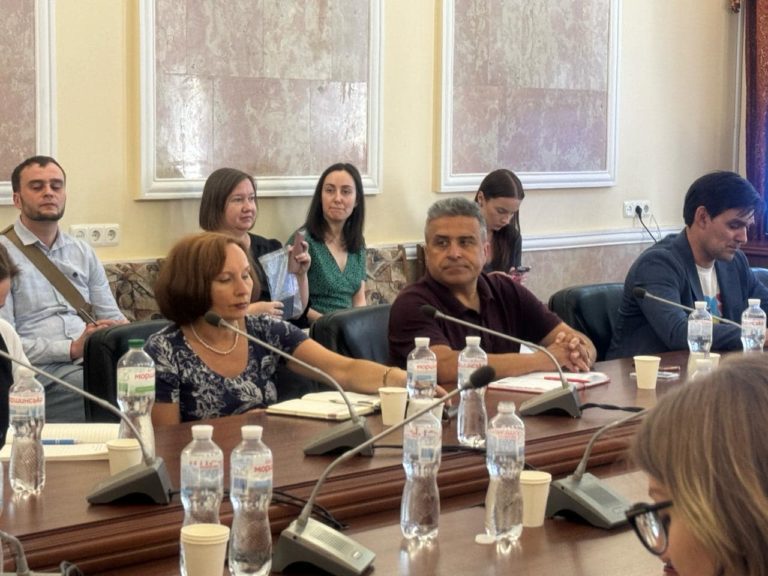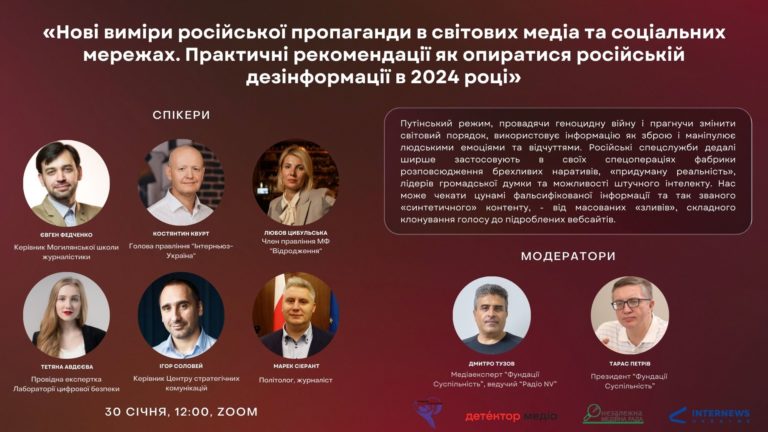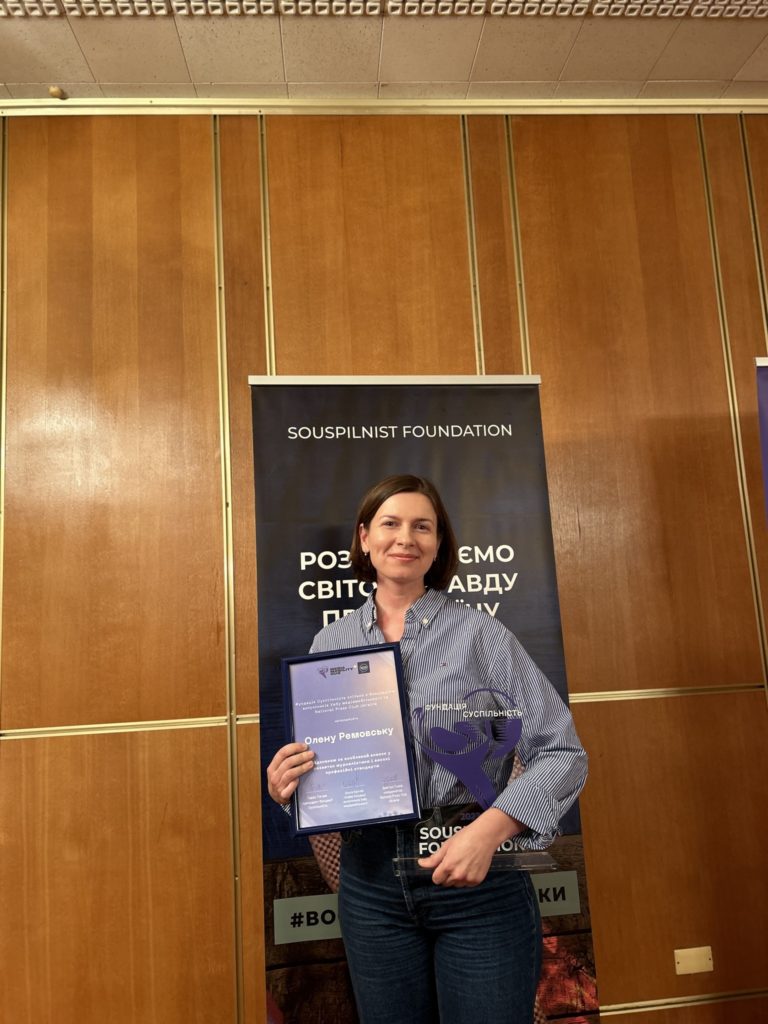Maryan Kushnir, a war correspondent for Radio Liberty, opened the curtain on the work of frontline journalists. Our participants were indeed fortunate to work with Maryan, a journalist who has seen a lot in hotspots and has gained unique experience, which he shared with media professionals during the intensive course.
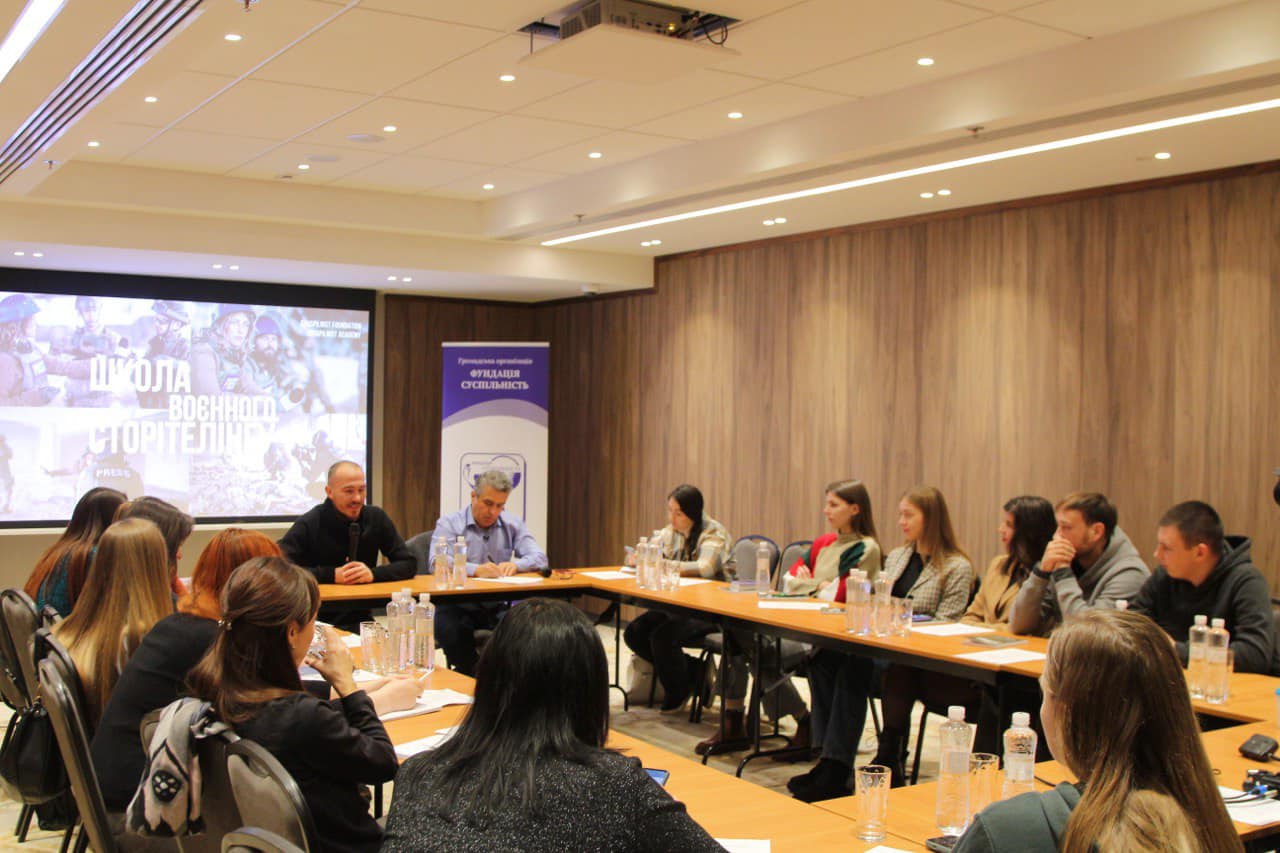
“You must be mobile and take care of your own safety. Keep an eye on the developments on the front lines. Monitor the dynamics. Often, the dynamics are predictable,” emphasized Maryan.
Maryan also gave the participants a practical task to formulate an action plan for assault conditions, which will certainly be useful in working with military topics.
“Attend training sessions, courses, including the School of Wartime Storytelling – it’s also a valuable intensive workshop where you will come out with new knowledge and skills,” concluded Maryan Kushnir.
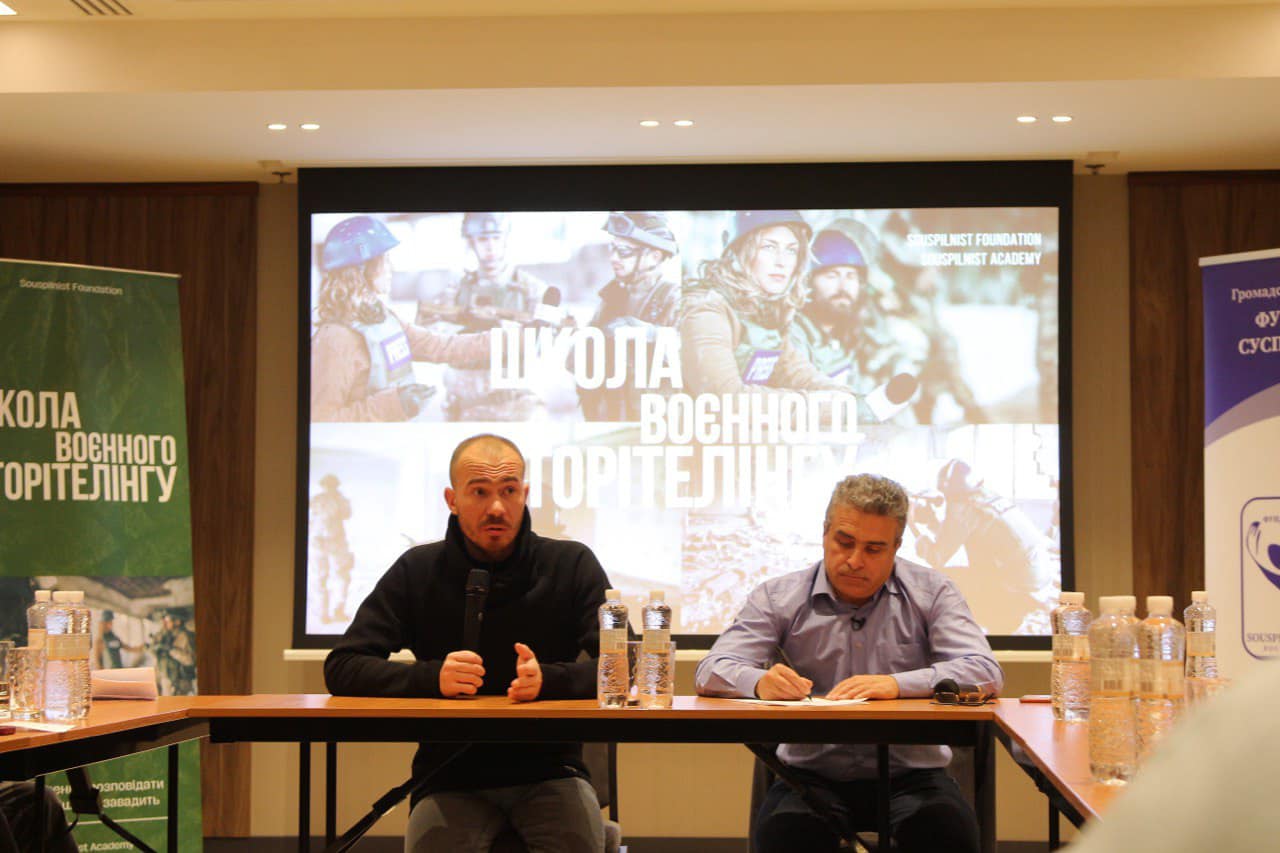
Continuing the School of Wartime Storytelling intensive training session, Olha Kruhlii, the head of the communications department at Svidomi, who possesses exceptional knowledge of storytelling in social media during wartime, shared her professional experience with our participants.
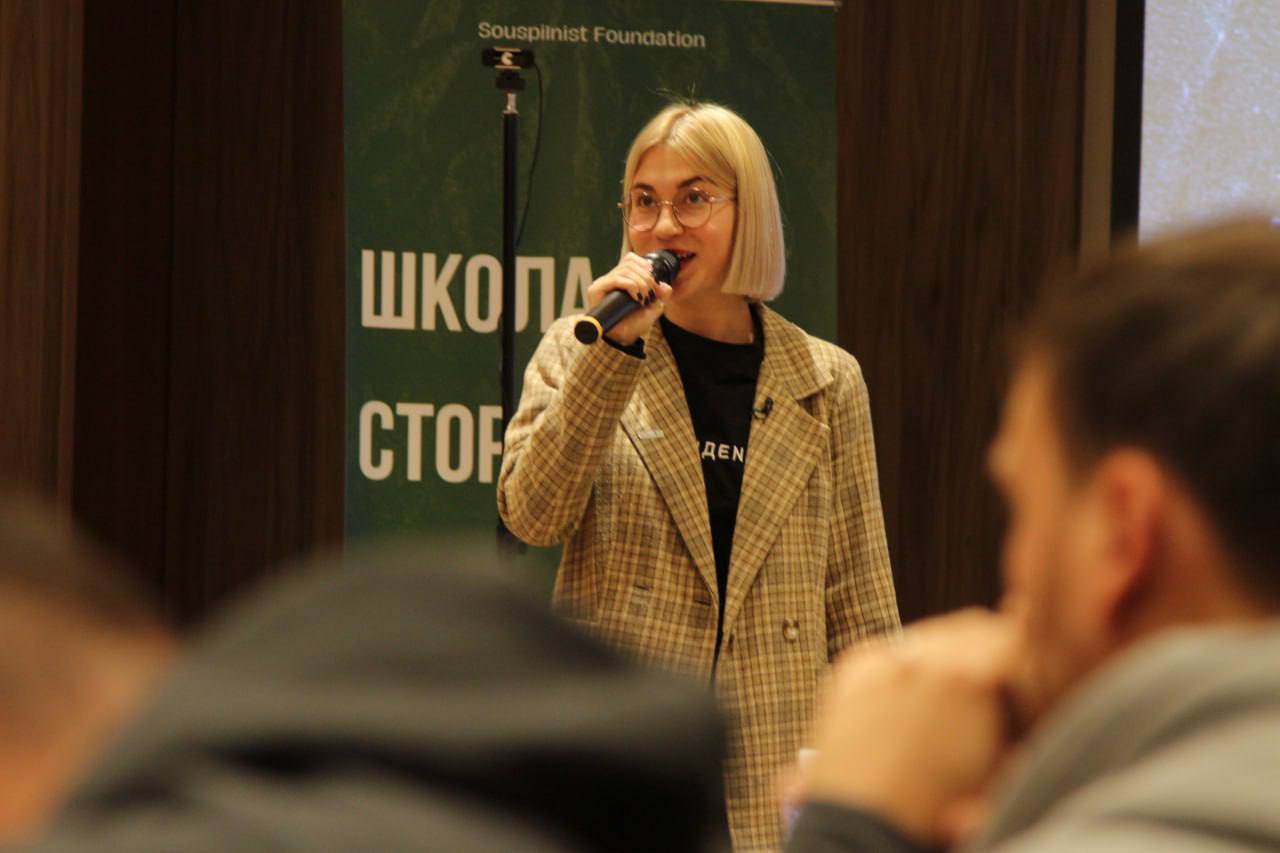
Olha demonstrated practical cases and emphasized the importance of visual and video components in promoting stories in the online space.
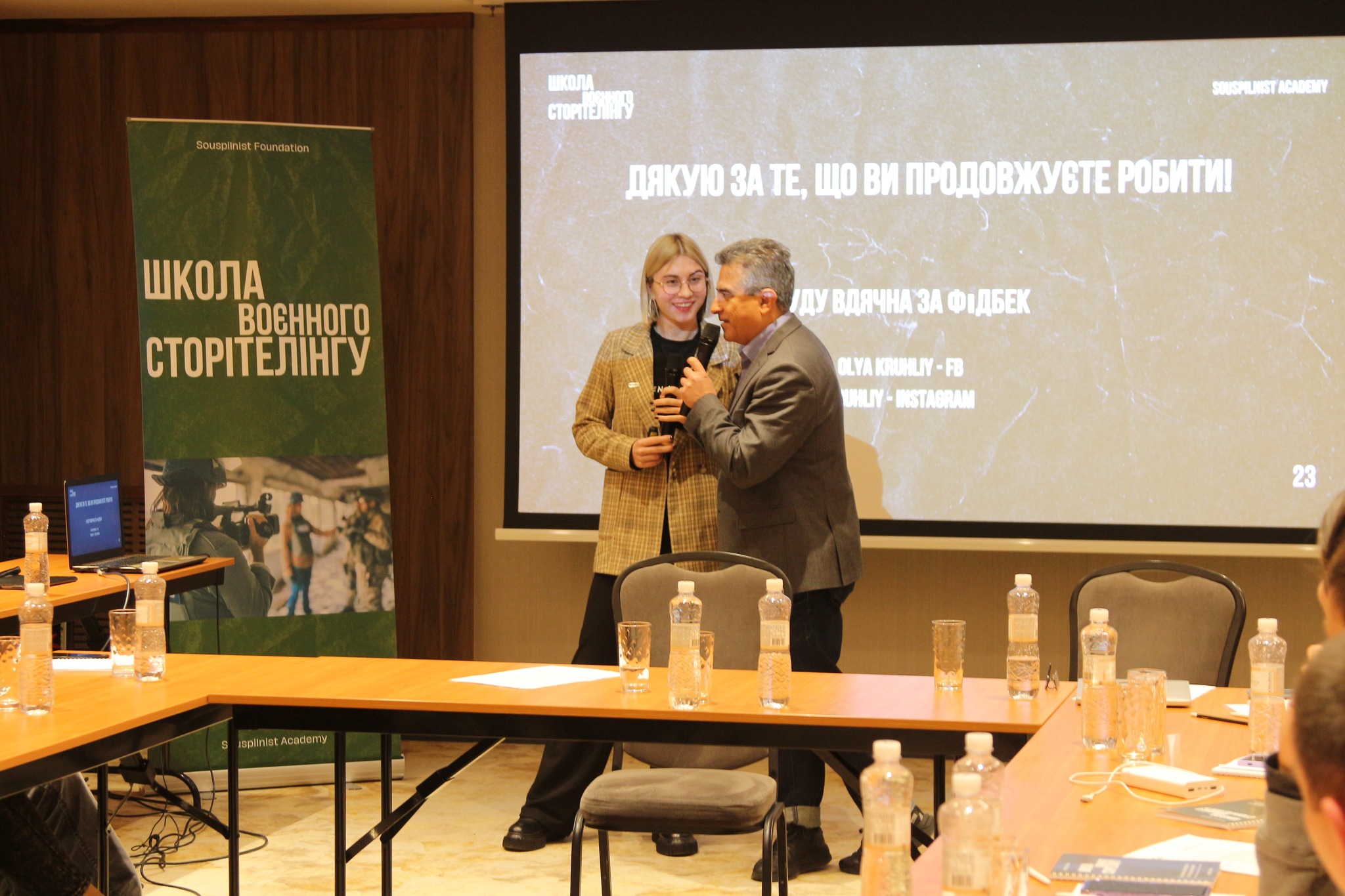
“Storytelling is visual. Don’t skimp on design. Knowing how to create images in Adobe or Photoshop is no longer interesting to anyone. You need to tell stories visually,” emphasized Olha. She also answered numerous questions from the audience and provided specific professional advice to each journalist personally.
Olesia Yaremchuk, a journalist and PEN member and the author of the book “Our Others,” shed light on the topic of storytelling in social reporting, explaining its components and how to tell stories that have an impact.
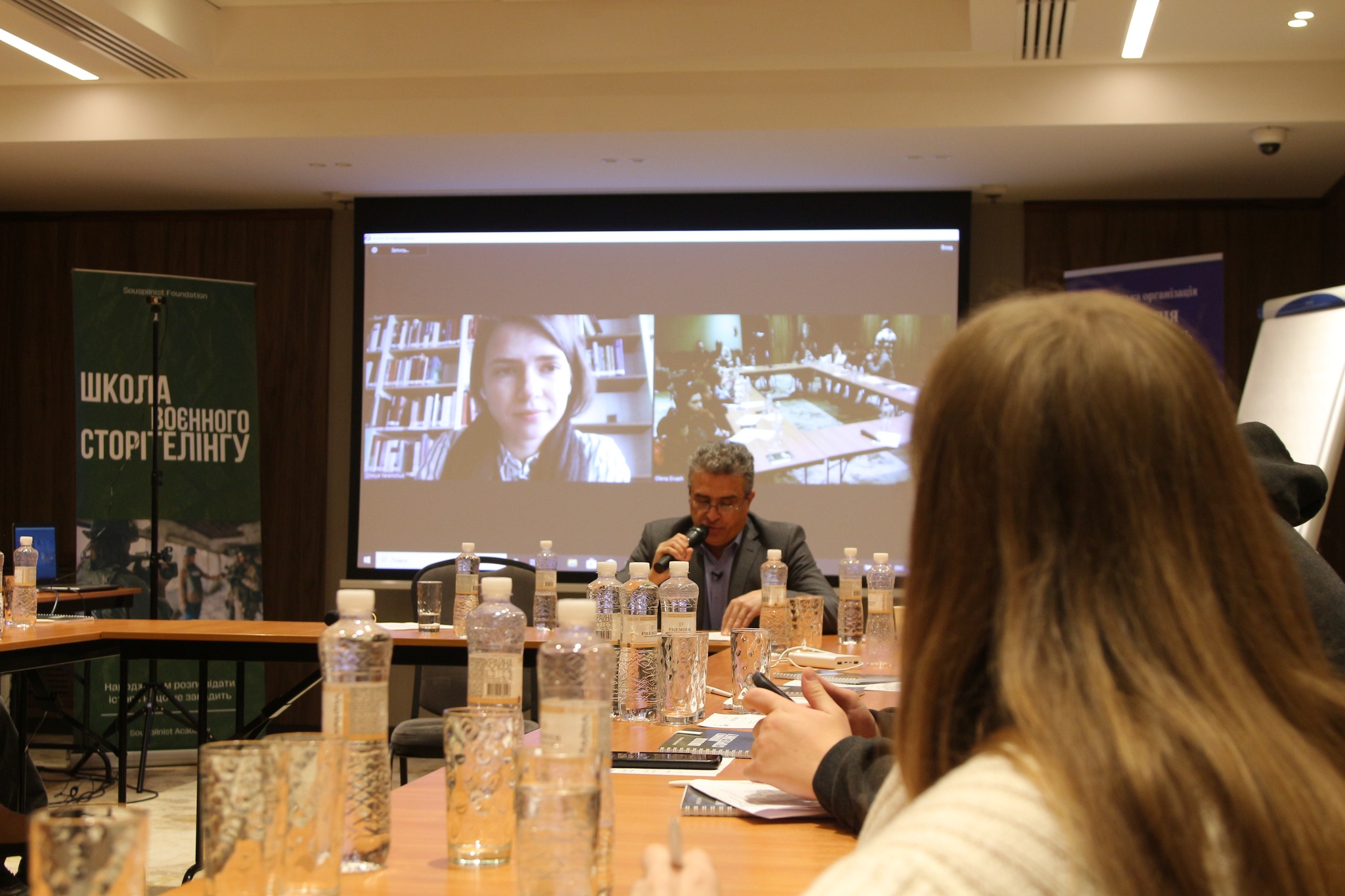
“Reports should be crafted in a way that allows readers to draw their own conclusions about those they feature,” noted Olesia. She also gave three practical assignments to our participants to reinforce their new knowledge.
At the conclusion of the training workshop’s second day, psychotherapist Ruslana Bezpalcha discussed the specifics of sensitive topics and how journalists should work with people who have traumatic experiences. This included strategies for avoiding confrontation and providing support in dialogue, methods of calming, and what should absolutely not be said or done to avoid causing further harm to the individual in question.
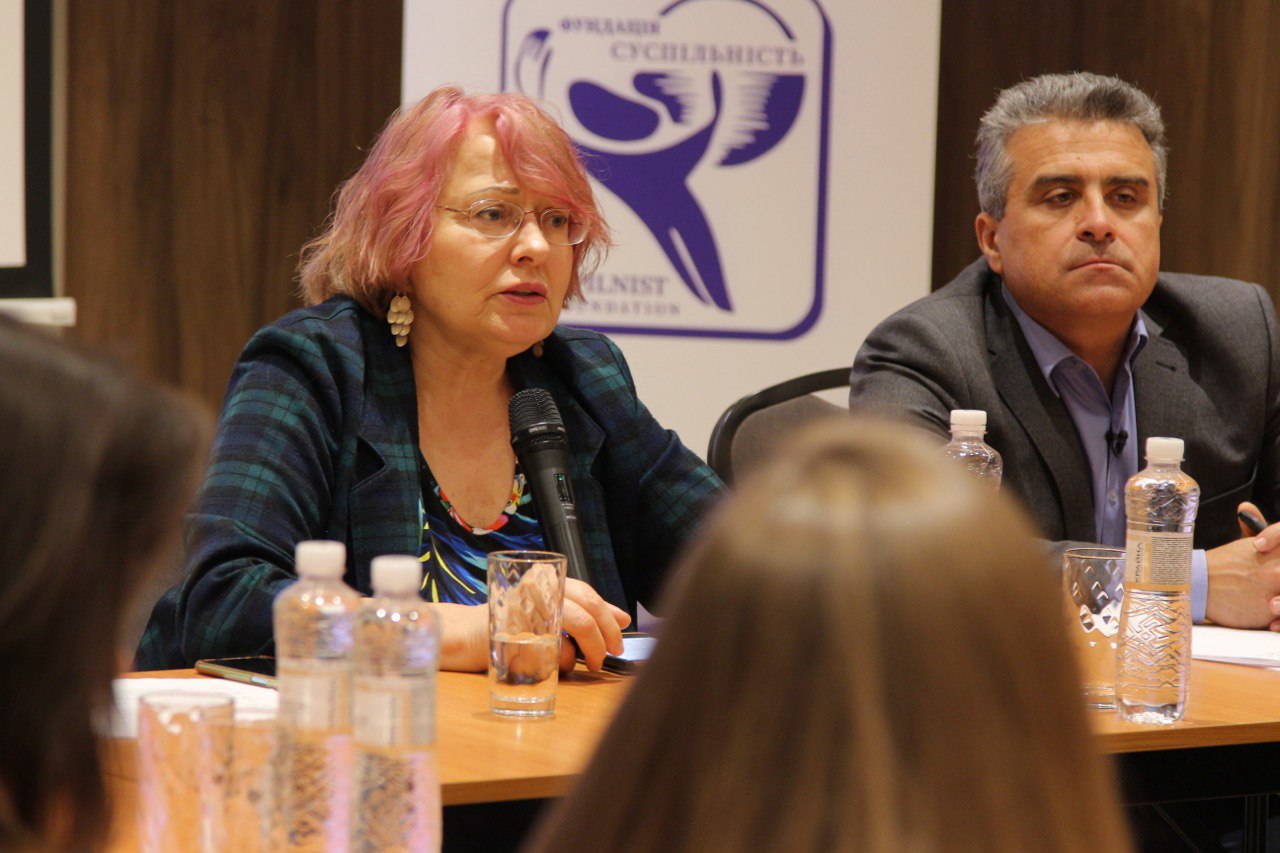
Tomorrow, our participants can look forward to another knowledge-packed day!
